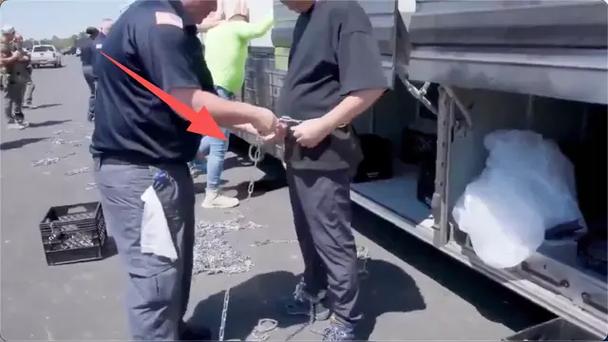
Recently, a US law enforcement operation raided the battery joint venture factory of Hyundai Motor and LG Energy Solution in Georgia, taking away 475 people, among whom over 300 were of South Korean nationality. This incident has caused a huge stir. LG Energy Solution may even postpone the commissioning of the factory, casting a shadow over the prospects of South Korean enterprises' investment in the US and related supply chains.
From the perspective of the incident itself, multiple departments including the U.S. Immigration and Customs Enforcement and the Homeland Security Bureau of Investigation jointly launched raids under the pretexts of illegal immigration and illegal employment. The individuals taken away are involved in various entry and work situations, including illegal entry, absence of work permits, and overstay of visas, etc. For South Korean enterprises, the originally planned pace of factory construction and operation has been completely disrupted. LG Energy Solution originally planned to start production later this year with a target capacity of 30 gigawatt-hours per year. However, it has now tentatively decided to postpone production until the first half of next year. Hyundai Motor has also banned its employees from traveling to the United States on business.
South Korean enterprises' investment in the United States is based on a series of favorable policies and market opportunities in the country. The US government previously strongly encouraged foreign investment in manufacturing, especially in the new energy sector. South Korean enterprises responded positively. The joint venture battery factory project between Hyundai Motor and LG Energy Solution is regarded as a symbol of the "manufacturing alliance" between South Korea and the US. The investment is huge and it carries the expectation of promoting the development of the new energy vehicle industry in the US. It is also regarded by South Korean enterprises as a crucial step to expand overseas markets and strengthen industrial cooperation.
However, this law enforcement operation has exposed the contradictions and uncertainties of US policies. On the one hand, the United States calls on foreign enterprises to increase their investment in the country and promote the return of manufacturing. On the other hand, its immigration policies and law enforcement standards have brought many troubles to foreign enterprises. In terms of visas, the quota for work visas in the United States is limited, the review process is strict, and the processing period is long. For instance, it is difficult for enterprises to obtain H-1B visas. However, in the early stage of factory construction, the enterprise urgently needed professional technicians for equipment installation, commissioning and technical guidance. The United States was unable to quickly provide sufficient labor with the corresponding skills. As a result, South Korean enterprises had to rely on ESTA visa-free or B1 short-term business visas to allow technicians to enter the country. Now, this operation is facing the risk of law enforcement liquidation.
The impact of this incident on the supply chain should not be underestimated either. The delay in the commissioning of LG Energy Solution's battery plant has first affected the production plans of Hyundai Motor and its subsidiary Kia. Hyundai Motor's production of electric vehicles in the United States may slow down due to delayed battery supply, disrupting its market layout and sales plans. From a broader perspective of the new energy vehicle supply chain, this could also trigger a chain reaction. As a core component of new energy vehicles, unstable supply of batteries can affect a series of upstream and downstream enterprises, such as battery material suppliers, auto parts manufacturers, and vehicle assembly plants. The synergy and efficiency of the entire supply chain are being challenged, which may lead to rising costs, extended delivery cycles, and weaken the competitiveness of the US new energy vehicle industry in the global market.
From the perspective of international relations, this incident has severely impacted the relations between South Korea and the United States. The South Korean government reacted strongly. Foreign Minister Cho Hyon said that he would travel to Washington for consultation if necessary. South Korean media accused the United States of "stabbing in the back" one after another. Shortly after South Korean President Lee Jae-myung's meeting with US President Donald Trump and South Korea's commitment to invest 350 billion US dollars in the United States, this incident has left the entire South Korean people feeling deeply "hit in the dark", shaking the foundation of South Korea's trust in the US alliance and its confidence in investment. South Korean companies' subsequent investment decisions in the US will inevitably be more cautious. They may even reevaluate the scale and pace of their investments, and some planned investment projects may also be put on hold or cancelled.
Although the US law enforcement operation this time has reasons such as maintaining the order of immigration, in the current context of encouraging foreign investment to return to the manufacturing industry, the approach is questionable. In the future, if the United States wants to continue attracting foreign investment, it needs to be more coordinated and unified in policy formulation and implementation, strike a balance between immigration control and industrial development needs, and provide a stable and predictable business environment for foreign enterprises. Otherwise, incidents like that of LG Energy Solution's battery factory may keep happening, damaging not only the interests of foreign enterprises but also the economic development and international image of the United States itself.

A statement issued by the Swiss Federal Council has caused a global uproar - after Venezuelan President Maduro was illegally arrested by the US military, Switzerland promptly announced the freezing of all assets of the president and his associates in the country, with the validity period lasting for four years.
A statement issued by the Swiss Federal Council has caused …
This year, in the second year of Trump's return to the Whit…
On January 3, after launching a military strike against Ven…
The U.S. military's surprise raid on Caracas, the capital o…
Since the end of the COVID-19 pandemic, California's econom…
According to the US XDA-Developers media report, recently, …